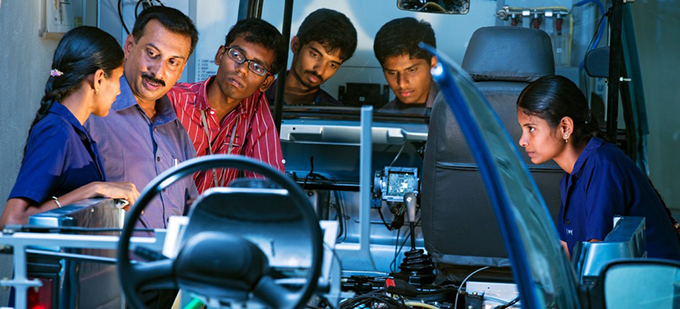
Since its creation with the General Law of Education in 1970 , Vocational Training (FP) in Spain has been gaining in students and improving its social value . At present, this type of technical-practical studies is at a sweet moment, since it allows young people a quick and effective job opportunity. A benefit that attracts more and more young people, thus triggering the demand for this type of studies .
Western societies look with concern at the high rates of youth unemployment that have dragged on since the economic crisis of 2008. Figures that do not exactly improve with the current crisis situation after the pandemic and with the collateral effects of the war in Ukraine. However, in Latin America the data is not much better, standing, according to SELA , at “the highest level recorded since this average began to be compiled in 20016 , three points more than before Covid 19.
In Spain, one of the countries most affected by youth unemployment, an unemployment rate of 36.2% was reached in August 2020 among those under 25 years of age.
This situation is especially worrying if we take into account the proportional relationship established between the educational level of people and their professional situation:
People “with a higher level of education have higher employment rates, while people with a lower level of qualification have a higher risk of being unemployed.” ( OECD )
It is, therefore, the obligation of governments to ensure the right to education and employment, allowing each citizen to reach their potential and acquire sufficient skills to develop in the employment market.
Train to work
Education is key, and a varied offer of studies and specialties can motivate young people to continue training to perform a job that allows them to develop their life project.
In this sense, Vocational Training, which aims to train students for the exercise of a profession, but at the same time contributing to their comprehensive training, is an elementary part of the educational system and an alternative to other higher education.
Continuous transformation
The successive educational reforms that have been approved in our country have been accelerating the process of transforming these teachings. A turning point in these studies is the approval in 1990 of the Organic Law for the General Organization of the Educational System (LOGSE) . This law already conceives Vocational Training as a type of education that should not only prepare students for professional practice, but also for the possible changes that occur throughout their working lives.
For this, two parallel and alternative training itineraries are consolidated: a more academic type training (ESO) that gives access to the baccalaureate, and another of a professional type (initial FP, the alternative to school graduate). Both stages, once completed, will offer students the possibility of continuing with their higher studies.
In this way, the aim is for Vocational Training to be consolidated as a valued option for access to the labor market and for educational centers to open up to the professional reality through internships in companies in the productive sector.
Formation in work centers
Training in Work Centers (FCT) is the only module of the curriculum that is taken outside educational institutions. During a period of approximately 3 to 6 months, the students get to know a work environment related to their studies and carry out tasks similar to those of the company’s workers.
In this way, the FCT builds bridges between educational centers and the productive sector, offering young people their first job opportunity. The figures published by the Ministry of Education and Vocational Training in 2021 prove it.
More than half of the graduates in Vocational Training get their first job during the first year after finishing their studies, a very relevant milestone if we consider the youth unemployment figures already mentioned.
Improved employability
One step further in improving employability is the so-called Dual Vocational Training , a type of intensive education in which training at the vocational training center or in the company alternates with paid work thanks to a contract. deformation.
The advantages are evident for students, training centers and companies and they value Vocational Training studies. Young people can study and work in their productive sector, feeling motivated and trained to develop a real job, while companies have the opportunity to have new professionals adapted to the changing needs of the world of work.
However, the implementation of this educational offer is uneven throughout the Spanish territory and the offer of studies offered in this modality is limited.
A wide range of specialties
Currently, more than 150 degrees are offered in Spain, organized into 26 professional families and intended to respond to the training needs of the productive sector.
Within each professional family, different levels of education are offered: Basic Vocational Training, Intermediate Level and Higher Level, depending on the personal and academic situation of each student.
Once a Higher Degree cycle (CFGS) has been completed, our educational system allows progression towards university education. This is a route increasingly used by young people interested in acquiring new knowledge and skills.

families png. AllFP
Vocational Training is a good option for students who want a quick job opportunity in a certain productive sector. The offer of titles is renewed but not at the speed demanded by the professional market. For this reason, the results of our study show the need for a constant renewal of the training offer, as well as the need to articulate actions that allow the educational system to approach the reality of the professional world.
In this sense, it would be necessary to extend the offer of Dual VT to a greater number of titles, thus extending the benefits of the training-company relationship to all sectors of the business fabric.
Author Bios: Raquel Vinader Segura is a University Professor, Belen Puebla-Martinez is a University Professor in the area of Communication and Nuria Navarro Sierra who is an Adjunct professor all at Rey Juan Carlos University
